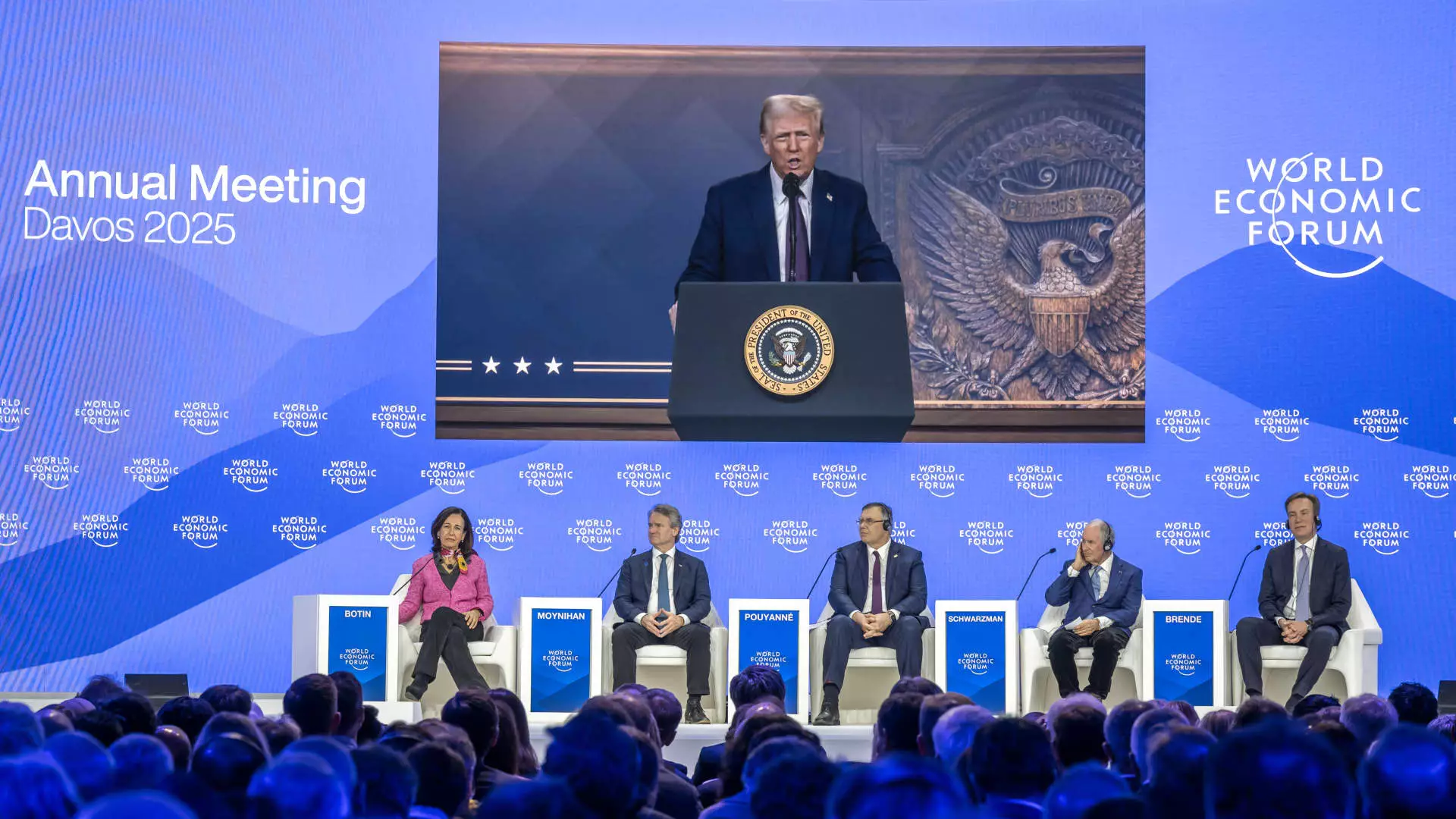The landscape of American politics and finance has dramatically shifted in recent years, presenting various challenges and opportunities for institutions and businesses. In this shifting terrain, the rhetoric surrounding banking practices, particularly regarding political affiliations, has come to the fore. Recently, former President Donald Trump reignited this sentiment, specifically targeting the leaders of two prominent American banks—Bank of America and JPMorgan Chase—during his address at the World Economic Forum in Davos.
During a video statement, Trump leveled direct accusations against the banking executives, suggesting that both Bank of America CEO Brian Moynihan and JPMorgan Chase CEO Jamie Dimon are deliberately refusing to cater to conservative customers. He stated, “I hope you start opening your bank to conservatives,” and indicated that conservatives have voiced grievances about being sidelined by these financial institutions. This assertion has primarily served as a lightning rod for ongoing discussions about political bias in banking, particularly among financial services that historically operate under a non-partisan framework.
Trump’s rhetoric aligns with a broader campaign narrative he is likely to amplify as the 2024 presidential campaign approaches. However, such claims are met with firm denials from both banking establishments, which maintain their commitment to serving a diverse client base.
In response to Trump’s accusations, spokespeople from both banks issued statements reinforcing their stance against political discrimination. Bank of America representatives emphasized serving over 70 million clients without a political litmus test, while JPMorgan underscored adherence to legal standards and regulations. These denials coming from major financial institutions reflect a significant concern about reputational risk and the public perceptions of bias that can influence client relationships and market performance.
Interestingly, the claims of conservative discrimination aren’t entirely new. They appear to have roots extending back several years, as notable figures have suggested a pattern where banks may act against clients perceived to have conservative or religious affiliations. Kansas Attorney General Kris Kobach’s previous assertions, alleging that Bank of America canceled the accounts of religious groups, lend context to the narrative being pushed by Trump’s camp.
Underlying Issues in Banking Practices
The contemporary banking system is influenced by regulatory pressures that have led to heightened scrutiny of certain industries. Following the 2008 financial crisis, major banks faced significant regulatory backlash due to risky lending practices. As a result, banks adopted stringent measures that often impacted high-risk industries, such as payday lending and firearm sales, leading to the cancellation of multiple accounts. Some analysts argue that the fallout from this atmosphere has contributed to a perception of discrimination among clients, irrespective of their political leanings.
According to Bank of America’s detailed correspondence in response to Attorney General Kobach, account cancellations stem from legitimate factors such as changes in account usage or failure to provide required documentation—none of which pertain to individual political beliefs. The bank insisted that it has maintained banking services for approximately 120,000 faith-based clients across the United States, countering the narrative of systemic bias.
The Rise of Political Narratives
Despite the banks’ denials, narratives surrounding political discrimination persist, particularly amongst influential voices on the right. Figures like Marc Andreessen, a venture capitalist and occasional Trump advisor, suggest that de-banking incidents affecting conservative entrepreneurs are prevalent, exacerbating concerns surrounding freedom of association and expression within financial institutions. The prominence of these claims signals a growing trend where banking practices intersect with political ideologies, particularly as different factions of the political spectrum vie for influence over mainstream narratives.
In light of these events, the banking sector faces a dual challenge: ensuring compliance with evolving regulatory frameworks while managing client perceptions in an increasingly polarized environment. This interplay of finance and politics will require leaders in the banking industry to navigate carefully, striking a balance between risk management, customer service, and maintaining a reputation for equitable treatment.
As the financial landscape evolves, it remains critical for banks to foster transparency and trust among their clients, irrespective of political beliefs. The ongoing dialogue regarding discrimination within financial services signifies a need for further clairvoyance, as both consumers and institutions grapple with the implications of political identity in banking. Moving forward, the challenge for leaders like Moynihan and Dimon will be to reaffirm their commitment to inclusivity while addressing the concerns voiced by customers and policymakers alike. The future hinges on the ability of the banking sector to adapt to this new political climate without sacrificing foundational principles of service and equity.

